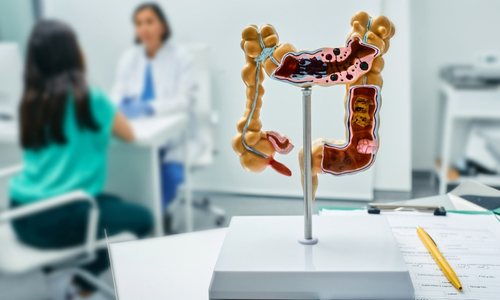Digestive health is often an overlooked aspect of our overall well-being, yet it plays a crucial role in our quality of life. Many of us experience occasional digestive discomfort, but how do you know when it’s time to see a Gastroenterologist? In this blog, we’ll explore the signs that indicate a need for specialized care and what to expect when consulting a gastroenterology specialist.
Understanding Digestive Health
Our digestive system is responsible for breaking down food, absorbing nutrients, and eliminating waste. It includes the mouth, esophagus, stomach, intestines, liver, pancreas, and gallbladder. Problems in any of these areas can lead to discomfort, pain, and a range of health issues.
Common Digestive Issues
Before we dive into when to see a specialist, let’s briefly review some common digestive issues that many people face:
- Heartburn and Acid Reflux: Often experienced after meals, these conditions can cause a burning sensation in the chest and throat.
- Irritable Bowel Syndrome (IBS): Characterized by abdominal pain and changes in bowel habits, IBS affects many individuals but is often manageable with lifestyle changes.
- Inflammatory Bowel Disease (IBD): This term encompasses chronic conditions like Crohn’s disease and ulcerative colitis, which require ongoing management.
- Constipation or Diarrhea: Both can be symptoms of underlying issues that need to be addressed.
When to Seek Help from a Gastroenterologist
Recognizing when to consult a Gastroenterologist is key to maintaining good digestive health. Here are several signs that indicate it’s time to make that appointment:
1. Persistent Digestive Discomfort
If you experience ongoing digestive pain, bloating, or discomfort that lasts for more than a few days, it’s a good idea to seek medical advice. Persistent symptoms can indicate a more serious condition that requires evaluation.
2. Significant Changes in Bowel Habits
Noticing significant changes in your bowel habits—such as prolonged constipation or diarrhea—can be a sign of a digestive issue. If these changes persist or are accompanied by other symptoms, consult a specialist.
3. Unexplained Weight Loss
Losing weight without trying can be concerning. If you’re shedding pounds without changing your diet or exercise routine, it’s essential to consult a gastroenterologist to rule out any underlying issues.
4. Difficulty Swallowing
Experiencing pain or difficulty when swallowing (dysphagia) can be a sign of esophageal disorders. If this occurs frequently, seek medical attention.
5. Chronic Heartburn
Frequent heartburn or acid reflux that disrupts your daily life may be indicative of gastroesophageal reflux disease (GERD). If you’re relying on over-the-counter medications regularly, it’s time to consult a specialist.
6. Family History of Digestive Disorders
If digestive diseases run in your family, you may be at a higher risk. Discuss your family history with your doctor, especially if you have concerning symptoms.
7. Unusual Symptoms
Certain symptoms, such as blood in your stool or vomit, jaundice (yellowing of the skin), or severe abdominal pain, require immediate medical attention. These can signal serious conditions that need urgent care.
The Role of Your Primary Care Physician
If you’re unsure whether you need to see a Gastroenterologist, start with your primary care physician. They can assess your symptoms and provide referrals to specialists if necessary. Your family doctor can also help manage less severe digestive issues or provide guidance on lifestyle changes.
Preparing for Your Appointment
Once you’ve decided to see a gastroenterologist, it’s helpful to prepare for your appointment:
- Keep a Symptom Diary: Note any symptoms, their frequency, and any triggers you’ve noticed. This information will help your doctor understand your condition better.
- List Medications and Supplements: Bring a list of all medications and supplements you’re taking, including over-the-counter products.
- Be Ready to Discuss Family History: Share any relevant family history of digestive issues, as this can provide valuable context for your doctor.
Conclusion
Don’t ignore your digestive health! Understanding when to consult a gastroenterology specialist can lead to better health outcomes and a more comfortable life. If you’re experiencing any concerning symptoms, don’t hesitate to reach out for professional help. Early diagnosis and treatment are key to addressing digestive issues effectively.
FAQs
1. What is a gastroenterologist?
A gastroenterologist is a specialist who focuses on diagnosing and treating disorders of the digestive system.
2. What are common tests a gastroenterologist may perform?
Common tests include endoscopy, colonoscopy, and imaging tests to evaluate the digestive tract.
3. How often should I see a gastroenterologist?
This depends on your specific health needs. If you have chronic digestive issues, regular visits may be necessary.
4. Are digestive issues common?
Yes, many people experience digestive issues at some point in their lives. However, persistent symptoms should not be ignored.
5. Can I manage digestive issues with lifestyle changes?
In many cases, dietary modifications and lifestyle changes can help manage digestive issues. Your gastroenterologist can provide personalized recommendations.

